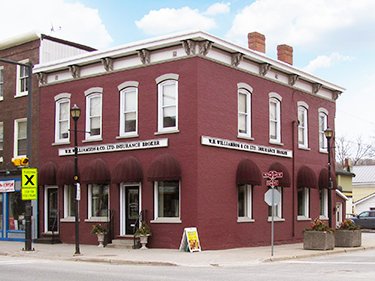Barbecue Season Is In Full Swing: Don’t Go Up In Flames
The joys of outdoor cooking also bring fire and associated risks. Here are some safety reminders for gas and propane barbecues to protect you and your property from harm or damage.
• Never operate a barbecue in an enclosed space, close to a structure, or near combustibles. Have a one metre radius around it free of obstructions.
• Keep your barbecue in tip top shape. Check for hose breakage, valve leaks, and other parts before securing the tank well and turning on the gas.
• When in use, never leave the grill unattended, and when finished turn the tank off before the burners so the remaining gas in the lines can burn off. This can help prevent a flash the next time the BBQ is in use.
• Make sure your fire extinguisher is easily accessible and in good working order.
Additional Tips
• Propane companies use an additive to create an unpleasant odour like rotten eggs to make a propane leak easier to detect, so you can shut off supply immediately, stop using the grill, and clear the area.
• Although the risk of carbon monoxide is low when using a BBQ outdoors, it is not entirely eliminated. Learn to recognize the signs of CO2 poisoning and take appropriate action.
• Store propane tanks in an upright position, in a spot where they are unlikely to be knocked or bumped to prevent any safety risk.

Real Estate Value vs. Rebuilding Value
Why would you insure your home for more than you paid for it? Many people mistakenly believe the amount they paid for their home is the same as its replacement cost. Depending on where you live, the cost to rebuild a total loss home can be significantly more than its market value. Some of the factors that drive up rebuilding/reconstruction costs include:
URGENCY: Property losses are not planned like a new construction project. When they do occur, there is a need to rebuild as soon as possible. This means the cost of labour, materials, and other services required are often significantly higher.
DEMOLITION AND DEBRIS REMOVAL: Major losses require the removal of partially damaged property and debris. Costs increase if there are environmental issues such as soil contamination.
CURRENT BUILDING CODES: New and more demanding building codes may need to be met when rebuilding or restoring a damaged home.
WORKSITE ACCESS AND COLLATERAL DAMAGE: At reconstruction sites there is typically less room because of debris, landscaping, fences and other buildings in the vicinity. This causes more work and material storage to be done away from the site, thus extending the project time and costs. Sometimes, physical access requirements result in collateral damage to existing property on and beside the insured’s property.
See next month’s tip on establishing a rebuilding value for your home.




 W.H. Williamson & Co. Limited
W.H. Williamson & Co. Limited




